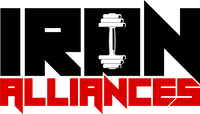
Protein is the building block of muscle. But not all protein sources are created equal. Some pack more muscle-building punch, digest faster, or offer a better amino acid profile.
Here’s the definitive ranked list of the best protein foods to help you grow.
Whey isolate is a pure, fast-digesting protein that hits your muscles quickly with all essential amino acids, including leucine—the muscle-building trigger. Perfect for post-workout or quick protein boosts.
Eggs provide complete protein with a perfect amino acid profile, plus important vitamins and minerals. They digest slower than whey but are a staple for muscle growth. Don’t forget the yolk—it’s nutrient-dense.
Lean, versatile, and packed with protein, chicken breast is a classic. It digests slower than whey or eggs, making it great for main meals to keep amino acid delivery steady.
Greek yogurt is rich in protein and probiotics, which support gut health—a key factor for nutrient absorption. The blend of fast and slow proteins (whey + casein) makes it ideal for sustained muscle repair.
Beef is a complete protein with excellent bioavailability and a rich source of creatine and iron, both supporting strength and recovery. Opt for leaner cuts to control fat intake.
Though not the highest protein density, salmon offers complete protein plus omega-3 fatty acids that help reduce inflammation and improve recovery.
Cottage cheese is a slow-digesting protein loaded with casein. Great before bed or during long periods without food to supply your muscles with a steady amino acid stream.
Excellent plant-based protein sources with all essential amino acids. Ideal for vegans and vegetarians looking to build muscle.
While not complete proteins individually, combined with grains they provide all essential amino acids. They also offer fiber, which supports digestion.
A rare plant-based complete protein, quinoa provides protein and carbs, perfect for muscle-building meals.
Not all proteins are equal when it comes to building muscle. The key factor is bioavailability—how well your body can digest, absorb, and utilize the protein you eat.
High-bioavailability proteins contain all nine essential amino acids (EAAs) in the right proportions, especially leucine, which is the critical trigger for muscle protein synthesis. Examples include whey, eggs, chicken, and beef.
On the other hand, collagen protein—while popular in supplements and bone broth—is an incomplete protein. It lacks tryptophan, one of the essential amino acids, and is low in leucine, making it a poor choice for muscle building.
Collagen is mostly made up of amino acids like glycine and proline, which support joint and skin health but don’t directly stimulate muscle growth.
Common collagen-rich foods include:
While these foods can benefit connective tissue and skin, they shouldn’t replace high-quality complete proteins if your goal is muscle growth.
For muscle growth, aim for about 0.8 to 1.2 grams per pound of body weight daily, spread evenly across meals. Balance animal and plant proteins for variety and nutrient coverage.
Consuming 20–40g of protein every 3–4 hours helps maximize muscle protein synthesis throughout the day.
Want more lifter-focused nutrition strategies? Browse the full Iron Alliances nutrition hub.